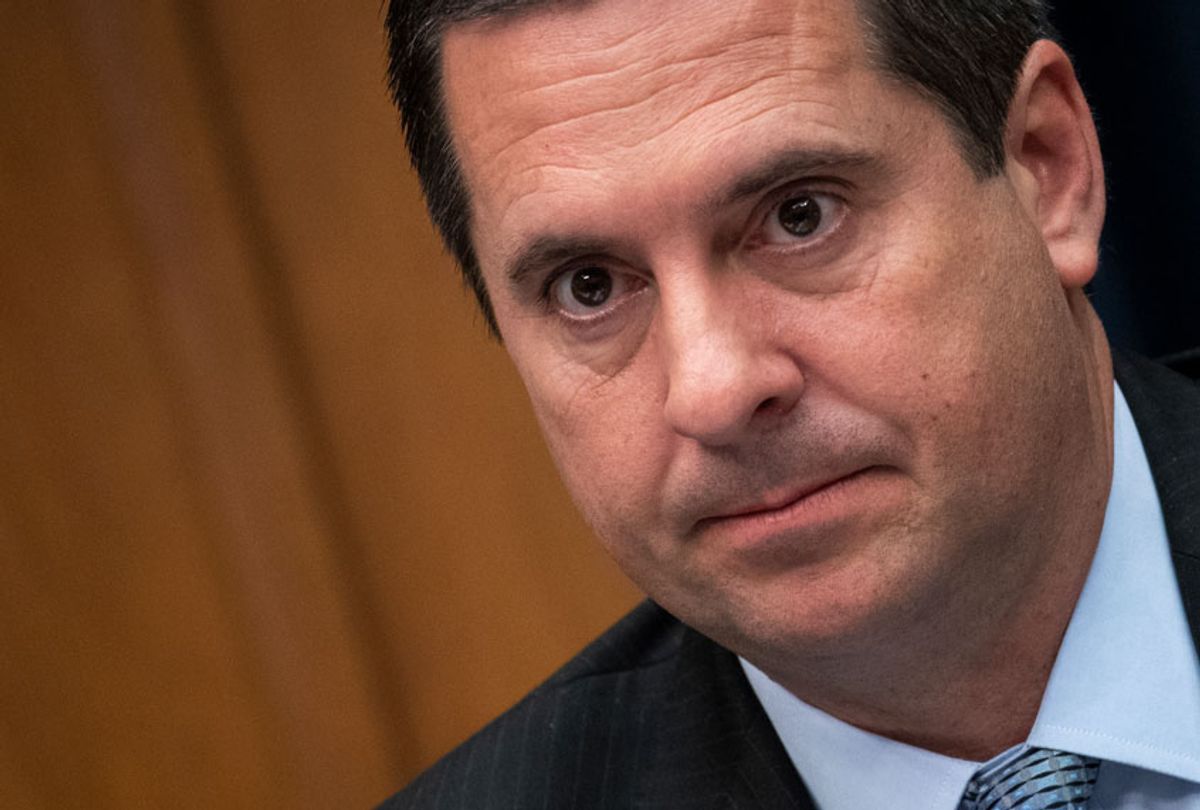Rep. Devin Nunes, R-Calif., argued Tuesday that it was "way overkill" for California to keep schools closed for the rest of the academic year in order to combat the spread of the new coronavirus.
Nunes, who previously urged Americans to go out to their local restaurants and pubs amid the pandemic, argued that schools should reopen within weeks rather than months during an appearance on Fox News.
"The schools were just canceled out here in California, which is way overkill," Nunes said. "I mean, it's possible the kids could have went back to school in two weeks, four weeks. But they just canceled the rest of the schools."
Nunes' comments came after the state's school chief said it was unlikely that schools would be able to reopen before the end of the year due to safety concerns.
His remarks also came after the White House coronavirus task force warned that between 1.5 million to more than 2 million people would die without sustained social distancing efforts like school closures. Even with ongoing mitigation efforts, models project the coronavirus will kill between 100,000 and 240,000 people. The models show mitigation efforts would push the trajectory of the virus into June, suggesting it would be highly premature to reopen schools before that time.
Dr. Deborah Birx, the coordinator of the White House task force, praised California on Tuesday as an example of how effective social distancing could help "flatten the curve" of the virus' trajectory.
Some experts have suggested that social distancing guidelines will need to remain in place until a vaccine is developed and distributed, which could take between 12 to 18 months. Dr. Anthony Fauci, the director of the National Institute of Allergy and Infectious Diseases, suggested that testing and contact tracing would be used to prevent a second wave of the virus in the fall when schools in the state could possibly reopen.
Nunes told Fox that he was "optimistic" about potentially using the malaria drug hydroxychloroquine to treat the virus. An Arizona man died after ingesting a fish tank cleaner that contained chloroquine phosphate after Trump hyped an unproven drug treatment for the new coronavirus in spite of the warnings of Fauci. Other countries have warned against its use for COVID-19.
"Look how quick we were able to get this approved — this new malaria drug that you have been talking about every night," Nunes said. "There's a lot of optimism here that we have in some of these drugs that are coming online."
Despite Trump and some governors expressing hope that the drug will work, there have been "only a few, small anecdotal studies showing a possible benefit of the drugs," The Washington Post reported. "Health experts warn the drugs' well-known side effects could become commonplace with wide use. In particular, they say, patients with existing heart problems or taking certain drugs, such as anti-depressants that affect heart rhythm, are at risk of a fatal episode. Experts recommend screening before the drugs are prescribed to prevent drug-related deaths."
"The concern really is if we're talking millions of patients, then this issue of drug-induced sudden cardiac death is absolutely going to rear its ugly head," Michael Ackerman, a professor at the Mayo Clinic College of Medicine and Science, warned.
Nunes on Tuesday also urged the public to "stop looking at the death counters, and let's talk about how we can keep as many people employed as possible."
"When you have people staying at home, not taking care of themselves, you will end up with a hell of a lot more people dying by other causes then you will buy the coronavirus," he claimed.
But many business leaders have said this rhetoric ignores the reality of what would happen if restrictions were lifted.
"It's very tough to say to people, 'Hey, keep going to restaurants. Go buy new houses. Ignore that pile of bodies over in the corner. We want you to keep spending, because there's maybe a politician who thinks [gross domestic product] GDP growth is what really counts,'" Microsoft co-founder Bill Gates said last week.
Though the restrictions have wreaked havoc on the stock market and led to millions of job losses, researchers at the University of Chicago's Becker Friedman Institute for Economics found that restrictions ultimately help the economy — not hurt it.
The researchers estimated the lives saved by the restrictions are worth $8 trillion to the U.S. economy.
"$8 trillion is over one-third of U.S. GDP and larger than the entire annual federal budget," they wrote. "Whether in regular times or during a pandemic, it is difficult to think of any intervention with such large potential benefits to American citizens."



Shares